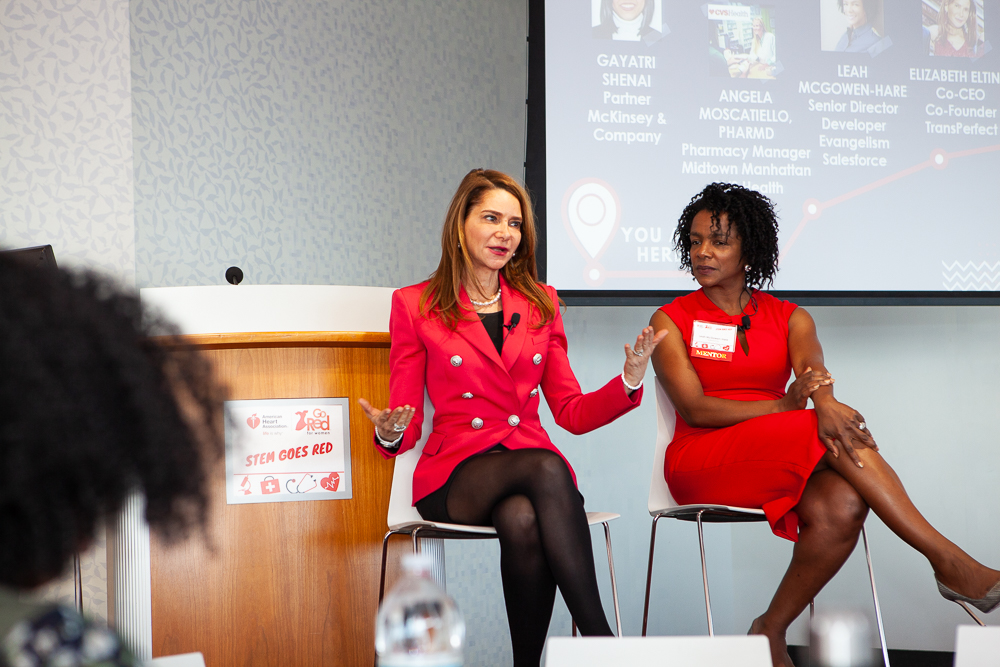News Roundup – Pepperdine Professor Talks Nostalgia TV Trends on NPR, and More

Let’s take a look at some of the biggest stories from this week, including a Pepperdine professor discussing the allure of nostalgia TV, and more.
NPR Podcast Invites Cristel Antonia Russell to Discuss Nostalgia TV – Pepperdine Graziadio Newsroom
Dr. Cristel Antonia Russell, Professor of Marketing at Pepperdine Graziadio School of Management recently spoke on the power of nostalgia TV on the NPR podcast On Point.
Along with Eric Deggans, NPR’s television critic, Dr. Russell discussed the phenomenon of the wide popularity of all things 1990s in current culture. A major topic of Russell’s research is the reasons behind why people tend to consume and re-consume certain pieces of pop culture. Take Friends, for instance, the rights of which was recently purchased by TimeWarner Media for $125 million. There has been a massive resurgence in the last five years or so of Ross, Rachel and the gang’s popularity.
Russell says, “Twenty-five years is a huge chunk of time to anyone. Nostalgia is a double-edged sword where a part of you wants to go back to these earlier times but a part of you is glad you are no longer an 18-year-old watching Friends. It allows people to reflect and realize how they have grown.”
For more on Dr. Russell, read here, and to download the On Point podcast about the nostalgia TV revival, visit NPR or listen below.
Dean Amy Hillman Drives an Unprecedented Year of Giving – ASU Carey News
Arizona State University’s W. P. Carey School of Business, led by Dean Amy Hillman, reached an unprecedented fundraising goal this year.
A $25 million donation from the W. P. Carey Foundation kicked off the $50 million campaign, and overall the school raised $43.7 million in fiscal year 2018-19. Alumni and current students helped to round out the gifts, with 615 individual donations from them and other private supporters. In all, alumni gave an impressive $11.7 million.

Hillman says of the campaign, “Of course what we do at W. P. Carey is business, but I always practice that ‘business is personal … What donors share with us, no matter the gift is about the people who are impacted through a scholarship, research, or career opportunity.”
The gifts came at a welcome time, as the state of Arizona has reduced funding for higher education in recent years. The money from the campaign will help to improve student resources, enhance research, and fund scholarships. For more on Dean Hillman and the fundraising campaign, read here.
‘Crazy Rich Asians’ Writer’s Dilemma Illustrates How Hollywood Pay Gap is Alive and Well – Kellogg in the News
Nancy Qian, Professor of Managerial Economics & Decision Sciences at Northwestern University’s Kellogg School of Management recently weighed in for an article in the Chicago Tribune on the massive pay gap in Hollywood for non-white writers and actors.
The most recent event that prompted this discussion was the departure of Adele Lim, one of the screenwriters for ‘Crazy Rich Asians’ from the film’s sequel. Her white male counterpart was offered considerably more for his contribution to the sequel’s script—nearly a million dollars, compared to Lim’s offer of $110,000.
While a comment in The Hollywood Reporter claimed that Lim’s offer was based solely upon her experience and past accomplishments, her supporters believe otherwise. Professor Qian says:
“The Warner Bros. response that they have a formula for determining pay seems like an excuse, since they can always build in more components to the formula to give it more flexibility, such as take into account expertise on the subject, the number of other people with similar expertise, the success of the last project, and the evaluation from co-workers.”
“Every situation is different,” she adds. “But it wouldn’t be crazy to see this as Lim getting hit by two forces—on average, for the same level education and work experience, 1) women get paid less than men and 2) Asians in the U.S. get paid less than Caucasians. The question of why is subject to debate.”
Read here for the full Chicago Tribune article.
NYU Stern Receives $5 Million Gift from Alumna Entrepreneur Elizabeth Elting (MBA ’92) to Support the Advancement of Women in Business – NYU Stern News & Events
NYU Stern alum Elizabeth Elting, founder of translation firm Transperfect, recently donated $5 million to the school with the goal of nurturing Stern’s female entrepreneurs.
The gift, which is the largest ever from a woman entrepreneur in the school’s history, will fund Elizabeth Elting Women’s Leadership Fellowships for a total of forty female MBA students. Students who demonstrate both academic merit and the desire to build their own businesses will benefit from the fellowship.

“Starting my own business is the best and most rewarding decision I ever made for my life,” Elting says. “It gave me the resources I needed to provide for my family and influence the world for the better. That’s why I’m so excited to provide this gift to NYU Stern. This money will not only make Stern accessible to a greater number of ambitious young women eager to create their own futures, but will also help the best and brightest launch new enterprises and carry out visions that could transform the world.”
You can read more on Elting and the fellowship here.
Avolio Ranked #2 Most Influential Researcher in Leadership, #3 in Organizational Behavior – Foster School of Business News & Events
Bruce Avolio, Professor of Management at the University of Washington Foster School of Business, was recently named one of the globe’s foremost thinkers on leadership and organizational development by The Leadership Quarterly.
The publication named Avolio the number one scholar in the world at forming networks in the field of leadership research, and second best in productivity and influence of his leadership studies.
Another industry publication, the Academy of Management Learning and Education, lists Avolio the third most influential author since its inception. Avolio’s wide list of accomplishments include the 2013 Eminent Leadership Scholar Award from the Network of Leadership Scholars in the Academy of Management, the American Psychological Society, the American Psychological Association, and fellowships in the Academy of Management, and the Society for Industrial & Organizational Psychology.
Read more on Avolio and his research here.
San Francisco’s Top 3 Economics MBA Programs

When it comes to learning about economics, what better place than Silicon Valley?
San Francisco holds a number of schools that offer an MBA with a focus on economics. The Bay Area is not just a place of lax tech bros though. It’s a place booming with culture and treasures like the Golden Gate Bridge and the Pacific Coast Highway. The beach isn’t too far, either.
But if you are looking for a place to build a resume, San Francisco is it: It ranks among the nation’s best performing cities. San Francisco is also second among cities in the U.S. for GDP growth associated with tech firms.
While many schools in the area hold prestigious MBA programs, here are the top three for where to obtain an economics MBA.
Haas School of Business – UC Berkeley
The Hass School of Business at UC Berkeley has been around for nearly 30 years, since 1989. The Berkeley name itself holds a sense of prestige, but the Haas School even more so. It’s the oldest business school at a public institution. That’s something.
As for its MBA programs, the Haas School offers a full-time, Executive, and a part-time MBA, for which students can take classes in the evening or on weekends. The full-time MBA takes two years and includes a variety of focus areas students can do via electives. One area of focus is economic analysis and policy.
This focus gives candidates that economic edge needed to make it in the field. This focus starts from a student’s first year though the electives tend to become more dominant in the second year. The courses make up 60 percent of the curriculum. Some of these electives use a macroeconomic lens to look at the global economy. Others look at the housing and urban economy from the viewpoint of investors and real estate developers.
Recruiters have come to Haas from healthcare, internet, and solar companies. The program takes just 275 students a year. Those interested in the Haas School of Business must apply by Sept. 21.
Stanford University Graduate School of Business
The Stanford University Graduate School of Business came about after former U.S. President Herbert Hoover, a Stanford alum, helped created the business school in 1925. About 800 students are enrolled in the program at a given time. Sometimes, the program could hold half that size. The Class of 2018 enrollment featured more than 417 students.
The noted university offers a single, full-time MBA program. The business school ensures its curriculum is flexible to fit every student’s needs. By the end of their first quarter, students develop a personalized plan for their foundational courses. That way, they get the basics down before moving onto establish their focus with their experience and goals in mind.
For those interested in economics, Stanford offers two types of expertise: political economics and managerial economics. Here, students can learn about financial crises, contemporary economic policy, managing global political risk, and many more topics.
F.W. Olin Graduate School of Business – Babson College San Francisco
The F.W. Olin Graduate School of Business at Babson College’s San Francisco campus opened not too long ago, in 2011. It offers a unique blended learning program. Not all students can manage the time to come into a classroom. This program is flexible and blends online classes with in-person classes every seven weeks on Fridays and Saturdays.
Core classes get into the nitty gritty all business students need: financial reporting, managing talent, strategy, and others. But students also get the opportunity to take a series of Signature Learning Experiences that take students outside the classroom and into a hands-on learning environment.
Course topics vary from a myriad of things—and economics is among them. The core courses include one on managerial economics and another on how to apply data to economics. The school also gives economics classes about game theory, trade, globalization, and health economics.
What Are The Right San Francisco Executive MBA Programs For You?

There’s many a path up the corporate ladder, but one of the most efficient ways to climb from middle-rung purgatory to a cushy C-Suite position is by earning an Executive MBA degree.
